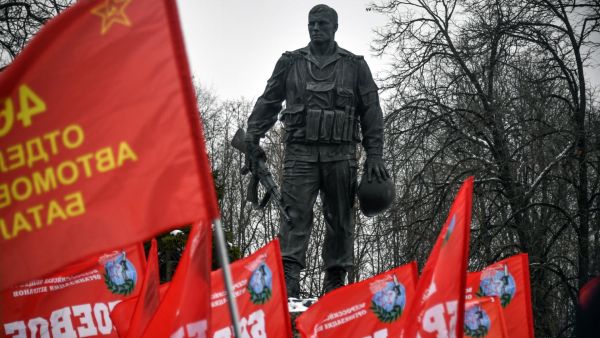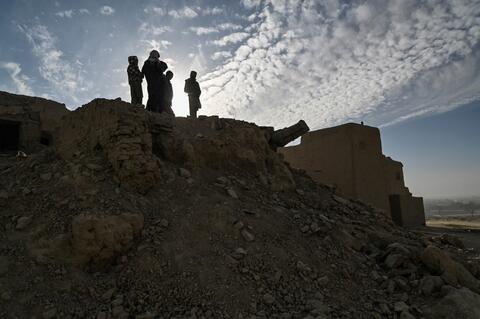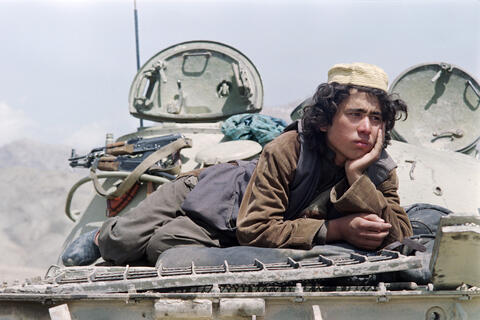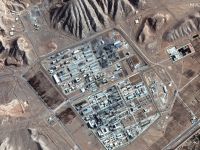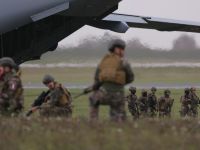By Farzad Ramezani Bonesh
Geopolitical approach
Although Afghanistan is not a neighbor of Russia and has no borders with it, Afghanistan has always played an important role in Russia's foreign policy and national security doctrines. Moscow had previously been humiliated by the long and unsuccessful occupation of Afghanistan.
After the Taliban took control of Kabul, the Russian approach was initially positive, with the Russian embassy in Kabul continuing to operate normally and establishing working contacts with representatives of the new authorities. But Moscow gradually took a more critical stance, pointing to the major dangers posed by the new situation in Afghanistan.
In fact, the Kremlin sees the "withdrawal of US troops and allies from Afghanistan" as a geopolitical "opportunity." From this point of view, the withdrawal from Afghanistan is another proof of the gradual weakening of the Western alliance, the decline of American hegemony and a turning point in the multipolar world order.
NATO's departure from the borders of the Commonwealth of Independent States reduces their threat for Russia. However, this power vacuum in Afghanistan does not automatically mean major achievements for Moscow. The current instability in Afghanistan should not expand beyond its borders to Central Asia, because it will give an excuse to the re-emergence of the West in Central Asia to secure the environment around Afghanistan. In fact, Russia wants to show that it is more reliable than the West in securing the region.
Security approach
Moscow's most important fear right now is the fear of turning Afghanistan into a source of international terrorism. In Russia's view, the Taliban have abandoned their global jihadist agenda and focused on domestic issues and the fight against dangerous international terrorist groups such as ISIS-K. Therefore, the international community should not undermine the Taliban's ability to fight terrorism.
The Taliban have been classified as a terrorist movement by Russia since 9/11, but Moscow will be able to cope with it, as long as the Taliban remain within local borders and without global goals. Therefore, Moscow supports the reduction and elimination of the presence and influence of NATO and the United States in Afghanistan. But it is reluctant to bear the heavy costs of counter-terrorism operation in the country.
The threat of the spread of terrorism and ISIS-K to Central Asia worries Moscow, because the security of the Commonwealth of Independent States is affected by the security of Afghanistan. ISIS-K is strengthening its presence in the northern parts of Afghanistan. Therefore, Russia is deeply concerned about the spread of extremist activity in Central Asia.
Meanwhile, the Russian is trying to expand cooperation between its military intelligence service (GRU), the Ministry of Defense and the Federal Security Service (FSB) and their counterparts in Central Asia to examine the possible rise of Islamism in Central Asia and Russia. Therefore, Russia intends to act in multilateral interaction (the Shanghai and Collective Security Treaty Organization) in the fight against terrorism.
For Russia, achieving stability in Afghanistan and eliminating the threat of terrorist groups in the region is a more important priority than the Taliban dictatorship in Afghanistan.
In another dimension, Drug trafficking from Afghanistan to Russia is a major security challenge for the country. The risk of Afghanistan's narcotics to Russia by increasing insecurity in the country is alarming. The spread of illicit drug trafficking in Afghanistan also funds terrorist organizations.
Although the Taliban have tried to attract Russia with promises to ban poppy cultivation, the international community's approach to the Taliban may lead them to use drugs to make up for the budget deficit. Terrorist and narcotics threats from Afghanistan have not changed since the Taliban came to power. Afghanistan's narcotics still threaten Russia.
In addition, Tajikistan is unable to accept large numbers of Afghan asylum seekers. So Moscow fears the risk of more waves of Afghan refugees crossing the northern borders of Turkmenistan, Uzbekistan and Tajikistan, and then Russia, and its security consequences.
Economic approach
Russia has had little economic presence in Afghanistan since 2001. But the potential for Russian investment in infrastructure, mining and energy resources of Afghanistan, and increasing exports of economic goods could be an opportunity for Russia. In addition, Afghanistan's (Central Asia-South Africa connection) could be an opportunity for Russian projects. Taliban is trying to use Russia as a lever to be recognized and gaining Russian support by welcoming Russia’s investment and economic presence in Afghanistan.
The current needs and conditions of Afghanistan also could be an opportunity to export weapons to the country. However, economically, severe instability also deters Russian investors, and the Eurasian Economic Union is virtually incapable of thinking about Afghanistan.
Diplomatic approach
Due to the presence of ISIS-K and other terrorist groups in Afghanistan, concerns about the presence of terrorists in Central Asia and Eurasia have forced Russia to choose choice Taliban. Moscow is also trying to ensure that Taliban do not attack Afghanistan's northern neighbors.
Moscow does not want to appear as a supporter of the Taliban, But despite the common enemies of Moscow and the Taliban (ISIS-K, etc.) is pursuing its own interests in Afghanistan. In addition to previous humanitarian aid programs in Kabul, Russia also plans to hold an international conference on aid to Afghanistan under the auspices of the United Nations. In addition, Russia is interested in de-escalating tensions between the opposition and the Taliban and in talks to form an inclusive government.
In addition, Russia wants to maintain ties with Tajik, Hazara and Uzbek ethnic groups and, as a mediator, help safeguard its interests. Moscow seems to see the inclusive government or coalition government as the best option to break the current stalemate and to stabilize Afghanistan.
Internationally, efforts to free up the Central Bank of Afghanistan's $ 5.9 billion assets, establishing a permanent advisory mechanism on Afghanistan, strengthening engagement with Pakistan, increasing cooperation with India, pursuing consultative formats with Iran, Afghanistan's neighbors and allies Central Asia, cooperating with China, etc. are parts of Russia's efforts to maintain its interests in Afghanistan.
Prospects of the Russian approach
The issue of "legitimizing" the Taliban government is not very important, but there are many indications that Russia will remove the Taliban from the national list of terrorist organizations. In fact, the Taliban has become more moderate and its threats to Russia have diminished.
The risk of anti-Russian sentiment among the Afghan people and elite is important to Moscow. Moscow has learned from the past experience in Afghanistan, it does not currently want the option of a military conflict in the country. so, a direct military presence (such as in Syria) in Afghanistan is not considered by Russia.
Meanwhile it doesn’t have the same economic and investment capacity in Afghanistan as China. Moscow wants to reduce threats to Russia and create new opportunities for its security and geopolitical interests. Thus, it tries to maintain a combination of diplomacy, friendly relations with the Taliban, eliminate security threats, and seize Russia's geopolitical and economic opportunities in Afghanistan.


